
The AIgorythm project

Playwright and actor
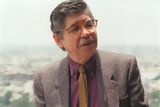
Novelist

Writer and poet

Volleyball player

Italian-Peruvian naturalist and geographer

Singer and percussionist

Last Inca emperor

Politician, former prime Minister

Journalist and TV host
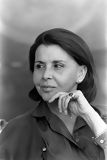
Poet

Inca warrior
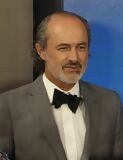
Actor and comedian

Biophysicist

Poet

Doctor and researcher
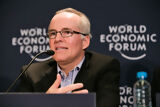
Businessman, Interbank group

Journalist and writer
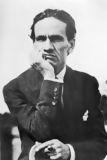
Poet and writer
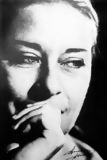
Singer and songwriter
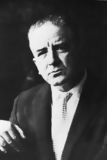
Writer

Film director, Berlin Golden Bear winner

Football player
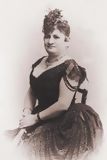
Writer and journalist
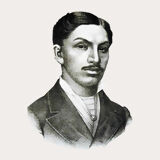
Doctor and scientist

Photograph

Chess player

Industrialist

Former general

Specialist in public health

Actress and singer

Afro-Peruvian music singer

Mathematician and engineer

Indigenous chronicler

Neurologist and anthropologist

Painter

Football player
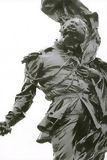
National hero, military leader

Intellectual and reformer

Chef and entrepreneur

Fashion designer

Singer-songwriter

TV presenter

Marathon runner

Indigenous Peruvian chronicler

Theologian

Former national team captain

Economist and former health minister

Inca princess

Writer and television host

Folk musician

Poet and guerrilla
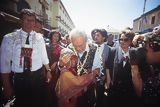
Former UN secretary-general

Chef, known for fusion cuisine

Football player

Peruvian aviation pioneer

Poet and artist
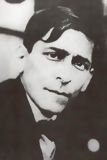
Marxist philosopher and writer

Industrialist and businessman
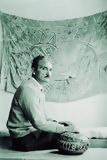
Novelist and ethnologist

Painter and muralist

Opera tenor

Fashion designer

Cardinal of Lima

Peruvian tennis player

Football coach

Leader of the indigenous rebellion

Military hero

Latin singer
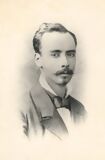
War of the Pacific hero

The youngest mother in history

Politician
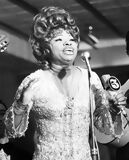
Creole music singer

Tennis player
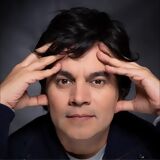
Musician

Writer and politician

Politician and founder of the Christian Democratic Party

Founder of Sodalitium Christianae Vitae

Archaeologist and anthropologist
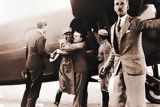
Military leader and politician

Television host
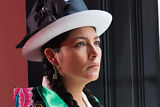
Actress and singer
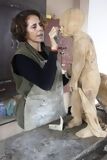
Contemporary sculptor
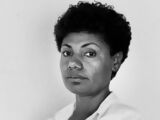
Women’s rights activist

Beauty queen

Astrophysicist

Heroine of independence
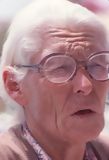
Mathematician and archaeologist

Historian and anthropologist
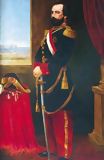
Military figure and historical figure

Fashion photographer
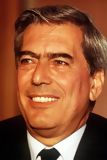
Writer, Nobel Prize in Literature, Politician

Revolutionary leader
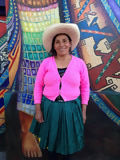
Environmental activist

Leader of the indigenous rebellion

Musician from Gaia band
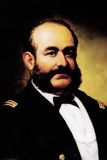
War hero
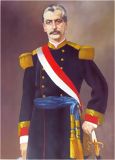
Military leader and politician

Chef, known for Nikkei cuisine

Volleyball coach and former player

Environmental activist

Television personality

Writer

Football player

Epidemiologist and former health Minister

Inventor and aerospace pioneer

Soldier and inventor

Rock singer

Chef and co-owner of Central restaurant

Painter

Football player

TV presenter and actress
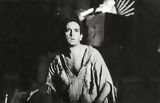
Actor
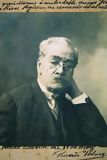
Writer and historian

Journalist and lawyer

Archaeologist, founder of Caral site
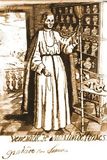
Monk and Saint
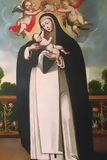
Saint, patron of Latin America

Physicist and engineer

World champion surfer

Actress

Oncologist
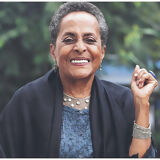
Singer, Latin Grammy winner

Former mayor of Lima

Singer

Actress

Former football player

Painter
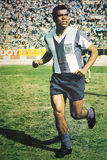
Former football player

Painter

Inca leader

Archbishop, saint
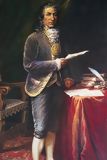
Leader of the indigenous rebellion

Revolutionary indigenous leader

Diplomat and intellectual

Sculptor and painter
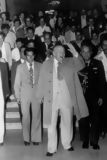
Political leader, founder of APRA

Lawyer and Former prime minister

Chef of Central restaurant
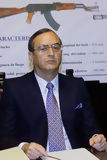
Former head of secret services

Popular singer

Fashion designer

Exotic music singer
María Luisa Aguilar was born in 1938 in Lima, Peru. She is recognized as one of the first women to pursue astronomy in Peru and Latin America and played a key role in developing this field in her country. Her pioneering work not only opened doors for future generations of female scientists in Peru but also contributed to the advancement of astronomy in the region. Her dedication and passion for studying the universe made her a reference for Peruvian and Latin American scientists.
María Luisa Aguilar showed an early interest in science, particularly in physics and astronomy. She studied physics at the National University of San Marcos, where she was one of the few women in her cohort. She later completed her astronomy studies at the University of San Andrés in Argentina, which allowed her to specialize in the study of stars. Upon returning to Peru, Aguilar faced the challenge of developing astronomy in a country where this scientific field was still relatively unexplored.
After completing her studies, Aguilar joined the Astronomical Observatory at the National University of San Marcos, where she began working as a researcher and professor. Throughout her career, Aguilar contributed to the advancement of astronomy in Peru, becoming one of the pioneers in astronomical research in the country. She published numerous articles in scientific journals and participated in international projects, which kept her up to date with the latest discoveries in astronomy.
In addition to her scientific work, Aguilar was a passionate advocate for science outreach. Through lectures, workshops, and articles, she worked to bring astronomy closer to the general public, sparking the interest of many young Peruvians in the study of space. Her commitment to teaching and outreach earned her recognition both in academia and society.
Throughout her career, María Luisa Aguilar also taught at the National University of San Marcos, where she trained several generations of students in physics and astronomy. Many of her students went on to excel in the scientific field, with some continuing her legacy in Peruvian astronomy. Aguilar was a dedicated mentor, eager to see more women enter the field of exact sciences.
In the field of research, Aguilar specialized in the study of variable stars and star clusters, topics she approached with scientific rigor. She participated in many international collaborations, which allowed Peru to be represented on the global astronomical stage. Although the country lacked the resources of major astronomical powers, Aguilar demonstrated that passion and knowledge could lead to significant discoveries.
María Luisa Aguilar received several awards throughout her life for her contribution to astronomy and her role as a pioneer in a traditionally male-dominated field. In 2006, she was awarded the National Science Prize for her career and achievements in astronomical research. Her legacy extends beyond her academic work, as her efforts to promote women's participation in science have been a model for many generations.
María Luisa Aguilar retired from teaching in the 2000s, but she continued to participate in conferences and science outreach activities until the end of her life. She passed away in 2015, leaving an indelible legacy in Peruvian astronomy and the fight for gender equality in science. Today, her work is still celebrated, and her contributions remain an inspiration for new generations of scientists in Peru and Latin America.
María Luisa Aguilar was a pioneer of astronomy in Peru and a role model for women in science. Through her work in research, teaching, and outreach, she significantly contributed to the development of astronomy in her country. Her legacy lives on through the generations of Peruvian astronomers and the young women who follow her example of dedication, perseverance, and love for science.